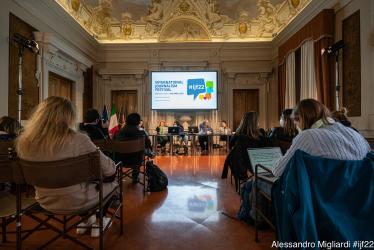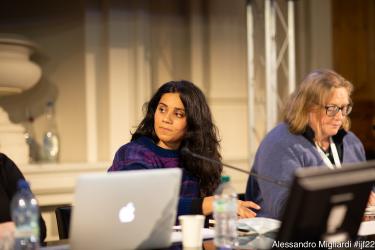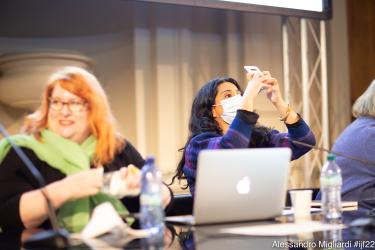As the COVID-19 pandemic took hold globally in early 2020, the International Center for Journalists (ICFJ) & the Tow Center for Digital Journalism launched a study into the transformational impacts on journalists and journalism around the world. The first 30 findings from the Journalism and the Pandemic Project -- based on responses from more than 2000 journalists from 125 countries -- were both startling and disturbing. At a time when the public needed to rely on credible independent journalism to stay safe and informed, journalists and news organizations were grappling with a mental health crisis, financial peril, physical safety threats, and press freedom attacks, while simultaneously battling pandemic levels of disinformation. 70% identified the mental health impacts of covering COVID-19 as the most difficult challenge, and nearly half said their sources had expressed fear of retaliation for speaking to journalists during the pandemic. At the time, COVID was cast as a potential extinction event for journalism. But two years on, as COVID lingers, what are the longer-term effects and opportunities emerging from the pandemic? Can this extinction event be re-cast as journalism's reformation moment?
This panel, anchored by the Journalism and the Pandemic Project's lead researchers, Emily Bell (Tow Center) and Julie Posetti (ICFJ), will launch the second phase findings of the longitudinal study and discuss case studies in resilience.
Organised in association with International Center for Journalists.










